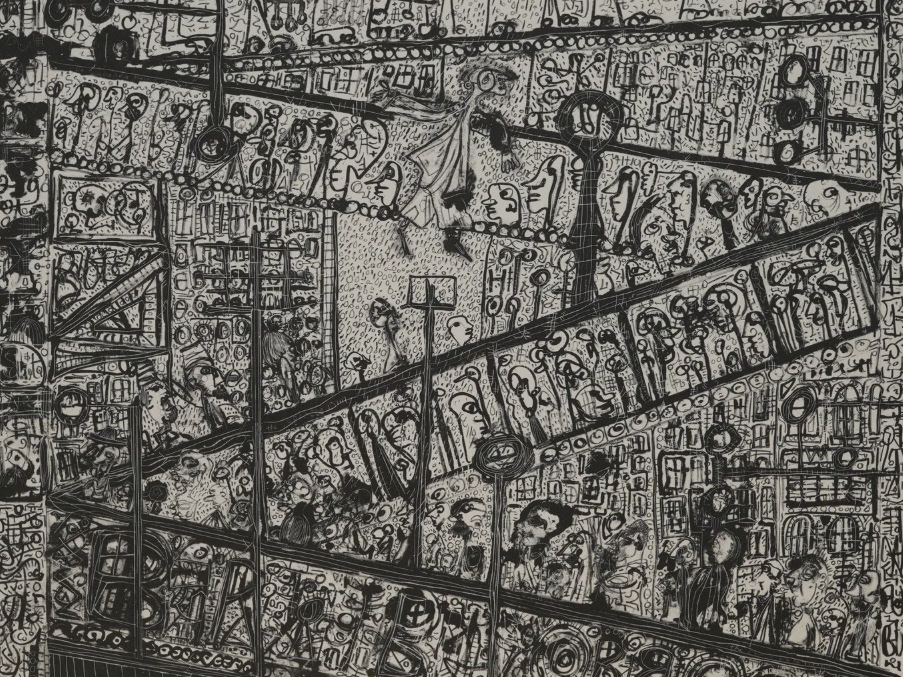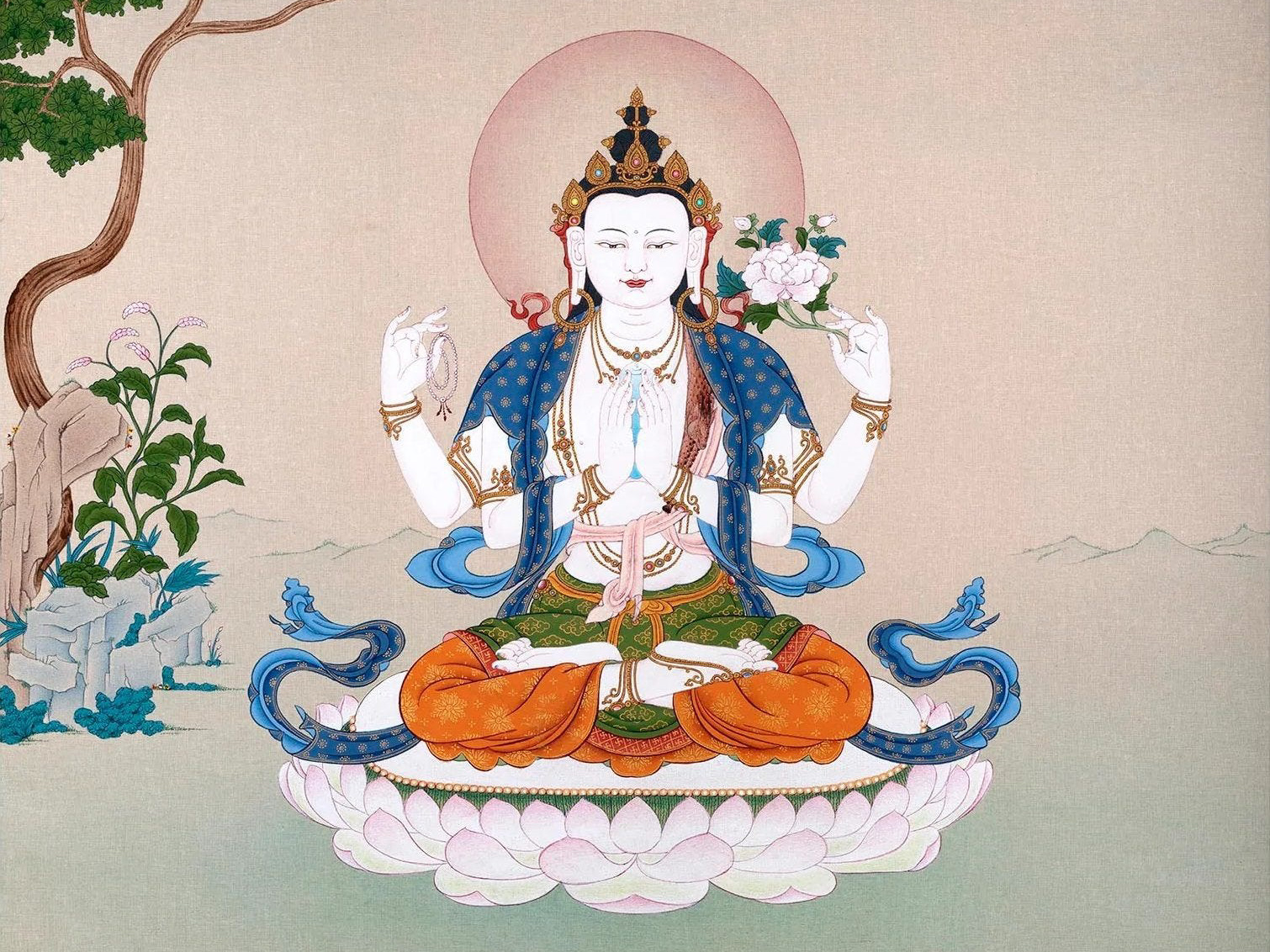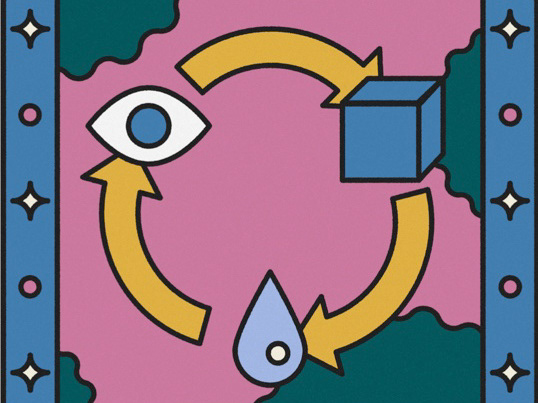Governments of the Industrial World, you weary giants of flesh and steel, I come from Cyberspace, the new home of Mind. On behalf of the future, I ask you of the past to leave us alone. You are not welcome among us. You have no sovereignty where we gather.
_____________
This is how John Perry Barlow opens his Declaration of the Independence of Cyberspace. Barlow was a Wyoming cattle rancher and lyricist for the Grateful Dead. A true flower child, he cavorted with Leary and Warhol and experimented with LSD. He wrote those words in 1996.
Silicon Valley is built on a strange mongrel of ideas. It managed to blend freewheeling hippy ideals with a libertarian veneration for the market, and combined utopianism with the worst dreads of science fiction. Its greatest asset has always been our imaginations.
There are a lot of parallels between the development of AI today and the development of the internet in the 1990s. Take Cyberspace. This refers to the totality of the digital environment – a term that was very popular in the nineties but has gone out of fashion as computers and the internet have lost something of their enchantment. Cyberspace was pretty much a limitless entity in the social imagination. Because it didn’t belong to the terrestrial world, it could twist free of its rules, and so became a life-raft for ideas that had elsewhere succumbed to the supposedly unalterable facts of life. It became something the old hippies could hang their dreams on, following the cynicism of the seventies and eighties. For Barlow, Cyberspace promised a utopia of free expression where we would be without bodies – thoughts floating through the fizz of information, ignorant of race and gender, clean of politics and history.
Cyberspace magically performed this function for all sorts of beleaguered visionary. It was a lawless frontier town and a village square. It was a perfectly free and frictionless marketplace far from bureaucracies and regulation, and a meeting-place where individuals could hammer out an egalitarian participatory democracy.
The genius of the tech entrepreneurs was to bottle all sorts of contradictory futures within the technologies they sold without making those contradictions manifest. Their genius was the creation of a future in the first place. Politically, the nineties felt trapped within a present condemned to perpetually repeat itself. If technology improved, it was within a stagnant cultural moment. The end of history was proclaimed; people imagined that the dramas of history would level into an unending flatness.
Silicon Valley’s success was its ability to invent a future again. In an inversion of the normal sources of credibility – a company’s track record, provenance, or the reputation of its backers – we were asked to judge companies like Google and Apple not on what they had done, but on what they hoped to do. Jobs, Zuckerberg, et al argued companies were better vehicles for social change than ailing governments, and they claimed their corporations would be guided by the moral vision they hoped to build rather than narrow commercial interests. They would give us connection in place of division, competition and war. Silicon Valley’s products were not sold as accessories to an unending present, but as the tools with which a future might be built.
In the face of a soulless and decrepit politics which seemed trapped in the present, this was attractive. No-one really knew what that weird community of hippies and geeks could achieve out west, far from the old world, like Galt’s Gulch in Atlas Shrugged. But compared to other options, it felt like something worthwhile. Because so many of us bought in to their vision, that future became reality.
The headquarters of Google and Apple resemble hippy communes
The Future Today
In political time, our proximity to the future varies. To me, a lot of the 2000s and 2010s felt like nothing ever changed. The same celebrities grew older, a new iphone was released, and all we had for our politics was a sparkless managerial centrism, business as usual. Despite shocks like the financial crash and the wars in Iraq and Afghanistan, the forces shaping our world continued unabated, accelerating towards a featureless grey blur. It is striking to consider that 2005 is as close to 1985 as to today, and yet felt so much further away.
But now the future is back, baby, and perhaps we didn’t miss it after all. It seems to be rushing towards us at breakneck speed, with AI models’ ability to perform tasks roughly doubling every seven months. There is a new generation of tech entrepreneurs driving the AI revolution: Sam Altman, Elon Musk, Peter Theil, Jensen Huang; although the old Titans – Google, Apple, Microsoft – still have skin (and a lot of capital) in the game. We will soon reach the point where AI agents autonomously perform a broad set of tasks, and a huge swathe of economic activity will have no human involvement: bots communicating, booking flights, purchasing orders, making deals.
The next prize which tech labs are chasing is Artificial General Intelligence (AGI), the point at which AI outperforms the most gifted humans in any economically valuable task, and which the ex-CEO of Google, Eric Schmidt, described as the “most important thing to happen in 500 years - maybe 1,000 years - of human society”. Estimates for when we reach it range between twenty years and next year. After that, the big milestone is Artificial Super Intelligence - smarter than the sum of all our best people, capable of revolutionising our understanding of physics, medicine, and technology. Musk calls it a ‘digital god’, Altman a ‘magical intelligence in the sky’. Is your heart in your mouth yet?
Tech leaders once again paint a glimmering vision of the future their technology can secure. “We can now imagine a world where we cure all diseases, have much more time to enjoy with our families, and can fully realize our creative potential”, Altman blogged. “The rate of new wonders being achieved will be immense”. We will no longer have to work for our survival. Altman imagines a new political settlement that would distribute the fruits of full automation equitably, arguing that driving down the cost of intelligence to approximately the cost of electricity would achieve this. Altman echoes the futurist Stewart Brand’s now-iconic 1984 declaration that ‘information wants to be free’ - meaning it is the sort of thing whose marginal cost (and price) runs down close to zero with technological progress.
This sounds not dissimilar from fully automated luxury communism, where automation, near-asteroid mining, bioengineering, and renewable energy means we can produce and live in abundance. As the liberal welfare economist J.M Keynes argued, in the future, the ‘economic problem’ will fade away and be replaced by man’s ‘permanent problem’ - “how to use his freedom from pressing economic cares…to live wisely and agreeably and well”. Or as Arthur C. Clarke put it, “the goal is full unemployment, so we can be free”.
The argument for AI now also has a more urgent tone. It is not just about shaking free the old bones of society in order to create a better world, but about the existential necessity of this technology in order to save the world we have. We are contending with an interconnected series of crises so great and complex that it is beyond the powers of our species to comprehend them. In order to work towards a solution, the argument goes, we must build something greater than ourselves.
Project Ecotopia 2121 imagines future cities that optimise advanced technology for fully sustainable living
Is this a future we can trust in?
When the future is brandished as a sales pitch, you have to take it with a pinch of salt. There’s probably something in the small print they don’t want you to see. Altman’s future, for instance, does not touch upon ownership – and there is a big difference between everyone freely using a technology and owning it.
It’s all very well for Altman to say intelligence will essentially be freely accessible to everyone, but this recreates the same problem that Silicon Valley faced during the dot com boom: how to monetise a technology that wants to be free. Developments in IT generated lots of value but also made it difficult to put up paywalls around information. Companies were valuated very highly but couldn’t develop a feasible revenue model, eventually leading to the dot com crash. The same dynamic appears to be at play in the AI boom: OpenAI is valued at $500 billion, making it the most valuable private company in the world, but it only reported $4.3billion in revenue for the first half of 2025. Markets are getting jittery.
Perhaps this is the contradictions inherent in capitalism coming to a head. For Marx, property relations which once facilitated the growth of the forces of production will eventually restrain them, and will be replaced by a new set of property relations – a new society.
But it would be wrong to conclude that this new society will necessarily be a communist techno-utopia. Cyberspace, facing the problem of free information, has in many ways already uprooted the relations of capitalist production. On the one hand, open-source sites like Wikipedia, WikiLeaks and Project Gutenberg are models of horizontal organisation and non-transactional collaboration. The World Wide Web itself was released royalty-free. Social media has connected us and enhanced our ability to speak truth to power: Facebook was crucial in organising peaceful protests in Egypt during the Arab Spring, and chat functions in Minecraft, Roblox, even Animal Crossing have all helped evade censorship in repressive regimes from Hong Kong to Iran.
But rather than a utopian ‘digital commons’, most of cyberspace has come to resemble a collection of feudal fiefdoms. Digital relations are predominantly mediated by privately owned platforms who have devised a clever new revenue structure: us. Every interaction on those platforms generates data about our behaviours, which are sold to advertisers so they can sell us back our desires. We are ‘cloud serfs’ unwittingly surrendering our value with no renumeration. Tech giants effectively charge us rent for existing in privatised cyberspace. The massive network effects and cumulative advantages created by total and frictionless digital connectedness have given rise to a corporate elite more powerful than any the world has ever seen.
Moreover, the internet has encouraged our darkest instincts and fractured our reality. Chatrooms have incubated hate and conspiracies and provided fertile ground for bullying, sexual violence, terror, and self-hatred to flourish. Silicon Valley has retreated from its liberal values. Meta has moved towards far more permissive content moderation policies to appease Trump, and Musk, apparently a Nazi, has dismantled those policies on X altogether. Hardware manufacturers exploit cheap labour who work in terrible conditions, and Apple factories have been forced to install safety nets to prevent suicides.
The younger generation of Silicon Valley appears just as willing to let their professed values and ideals sit alongside exploitative and extractive practices. Peter Theil’s company, Palantir, has supplied the IDF with AI technology that monitors and targets Palestinians. Datacentres drain municipal water supplies and often in water scarce areas. Data annotators, who help build the safety parameters for AI-generated content, are exposed to extremely traumatic content such as executions, child pornography, r*pe. They are forced to compete for scraps of work offered sporadically and snapped up in seconds, and often paid less than a dollar an hour.
Unlike the digital revolution, the AI revolution does not present a plurality of futures. The idea of cyberspace was a grassroots utopia as diverse as its advocates, and the reality was an orderless wild in which big beasts came to dominate. But with AI, the revolution is heavily top-down and those same beasts are the ones calling the shots. The market is highly concentrated amongst a tiny set of private companies mostly headquartered in Silicon Valley; massive investment to the tune of $717 billion over the last three years is led by that same elite. The chief ideologists of this new religion are the very same people who own and lead those companies.
Trump with the CEOs of tech giants SoftBank, Oracle and OpenAI
Like the cyber-utopians, AI developers crave transcendence of our mortal bounds. They eagerly look forward to a future where we can shed our skins and be uploaded as digital beings onto cyberspace. But this vision is no longer an inclusive utopia – nor one coexistent with the old world. As the media theorist Douglas Rushkoff points out, it is reserved only for those rich, smart, or determined enough to take the leap.
In this privatised AI future, it is more accurate to frame rapid automation not as ‘liberation’ from work but as mass destitution. We will lose our collective power as workforces when entire workforces can be replaced by machines - which will force whoever still has a job to accept worse pay and conditions. lya Sutskever, former chief scientist at OpenAI, said he doesn’t think it will take long for the entire surface of the earth to become covered with data centres and power stations as they are “too useful to not exist”. Soon, according to Eric Schmidt, we will reach exponential ‘recursive growth’ where datacentres build datacentres and robots build robots, removing all human involvement in reproducing the forces of production and all possibility of resistance.
As it stands we have power as consumers: if we are all too immiserated to buy anything then the economy will fail, so Silicon Valley needs most of us to retain some level of security and income. But if the tech giants become automated empires that are fully self-reliant, they can withdraw from economic activity. We will become totally valueless; even our data is only valuable insofar as we consume. Under the strains of a failing environment, mass unemployment and exploding inequality, the nation state will probably cease to exist as a political form. Most of humanity will be reduced to hungry scavengers eking out their survival in the ruins of society, overseen by an ultra-hi-tech forever aristocracy.
Accelerationists like Peter Theil, who has been dubbed the philosophical godfather of Silicon Valley, even believe we should run eagerly towards the extinction of our species. We’re still primitive apes, lumbered with expiring bodies, whose powers of reasoning are consigned to the pitiful scale of hunter-gatherer tribes. But we can create a successor race of digital beings with godlike powers, cognitively attuned to the pace and scale of modernity. It is a paradox where most of Silicon Valley believes technological progress is inevitable but are also the principal agents bringing it about. They believe creating AI is our cosmic purpose.
The computer scientist Jaron Lanier recounts this recent experience in Silicon Valley:
Just the other day I was at a lunch in Palo Alto and there were some young AI scientists there who were saying that they would never have a “bio baby” because as soon as you have a “bio baby,” you get the “mind virus” of the [biological] world. And when you have the mind virus, you become committed to your human baby. But it’s much more important to be committed to the AI of the future. And so to have human babies is fundamentally unethical.
__________________
This is nothing short of a death cult, what the journalist Gil Duran calls the ‘nerd Reich’. All our values and attachments, our whole moral universe, cannot cling on at this level of abstraction.
The vision of dreamers like John Perry Barlow which held sway Silicon Valley in the late 1990s and 2000s has degenerated into something ugly and bizarre. Today the tech elite adhere to a schizoid dual narrative that reads both like utopian science-fiction and the book of revelations. Like with the rise of the internet, the future has a significance for Silicon Valley both as a marketing tool and as a source of messianic purpose – except now those things are at odds. The future being sold to us is cover for them to seize it for themselves. That said, automation still promises to free us from scarcity and work, and might finally create the conditions for a truly equitable and affirming society to flourish. By working to end neoliberalism, we can reinvent a political future, where a resistance might be staged. The future can still be won.
Sources
Karen Hao, Empire of AI (2025)
Aaron Bastani, Fully Automated Luxury Communism (2019)
Karl Marx, Selected writings (trans. David McLellan) (1977)
Yanis Varoufakis, Technofeudalism (2023)
Emile P Torres, The Endgame of Edgelord Eschatology (2025), https://www.truthdig.com/articles/the-endgame-of-edgelord-eschatology/
Emile P Torres, Digital Eugenics and the Extinction of Humanity (2025), https://www.techpolicy.press/digital-eugenics-and-the-extinction-of-humanity/
Petter Törnberg, Seeing Like a Platform (2025)
Richard Barbrook and Andy Cameron, The Californian Ideology (1995)
John Perry Barlow, A Declaration of the Independence of Cyberspace (1996)
Sam Altman, https://blog.samaltman.com
Business & Human Rights Resource Centre https://www.business-humanrights.org/es/%C3%BAltimas-noticias/palantir-allegedly-enables-israels-ai-targeting-amid-israels-war-in-gaza-raising-concerns-over-war-crimes/
Interview: Peter Theil and Ross Douthat, Peter Theil and the antichrist https://www.nytimes.com/video/opinion/100000010244372/peter-thiel-and-the-antichrist.html
Jesse Damiani, explaining polycrisis and metacrisis https://www.realitystudies.co/p/explaining-polycrisis-and-metacrisis?utm_source=substack&utm_campaign=post_embed&utm_medium=web
Eric Schmidt, The AI revolution is underhyped https://youtu.be/id4YRO7G0wE








